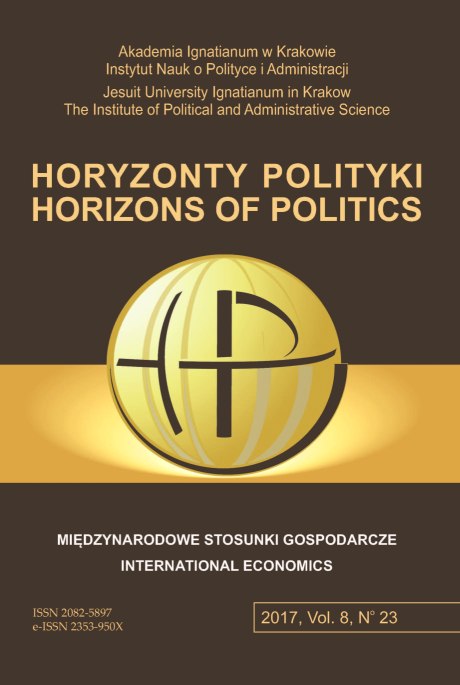Efekty realizacji założeń Europejskiej strategii bezpieczeństwa energetycznego dotyczących efektywności energetycznej w Polsce
Implementation of the energy efficiency assumptions of the European energy security strategy in Poland
Author(s): Magdalena ZajączkowskaSubject(s): Energy and Environmental Studies, Environmental and Energy policy, Government/Political systems, EU-Approach / EU-Accession / EU-Development
Published by: Uniwersytet Ignatianum w Krakowie
Keywords: climate and energy policy goals; energy efficiency; energy security; EU climate and energy policy;
Summary/Abstract: RESEARCH OBJECTIVE: This article presents the results of the implementation of the European energy security strategy objectives in the field of energy efficiency target in Poland. THE RESEARCH PROBLEM AND METHODS: The basic problem is the analysis of areas of European energy security strategy in the context of increasing energy efficiency and its practical implementation in Poland. The analysis is based on critical analysis of literature, statistical method (Eurostat, European Commission project Odysse‑Mure, energy efficiency index ODEX, International Energy Agency study based on the energy intensity measure) and comparative method (situation in Poland and in the EU). THE PROCESS OF ARGUMENTATION: The first element are the conclusions of the literature analysis based on the energy efficiency definitions and the proposal of common energy efficiency definition. Another part concerns the analysis of areas of European energy security strategy and the objective to increase energy efficiency in Poland. The background to the above mentioned considerations is the situation within the EU. RESEARCH RESULTS: In the literature, there is no widely accepted energy efficiency definition, making it difficult to conduct research on this phenomenon, as well as the creation of a coherent energy security theory. The use of various energy efficiency measures lead to substantial disparities in analyzes. Empirical studies showed that there was an energy efficiency improvement in all analyzed sectors in Poland. The largest increase was recorded, in contrast to the situation within the EU, in the industry. Furthermore, the use of various energy efficiency measures lead to substantial disparities in the conduct analyzes. CONCLUSIONS, INNOVATIONS AND RECOMMENDATIONS: Energy efficiency should be taken into account in a broader context, which is the creation of the energy security theory. There is a need to create one index of energy efficiency, which should be a component of the energy security index.
Journal: Horyzonty Polityki
- Issue Year: 8/2017
- Issue No: 23
- Page Range: 121-140
- Page Count: 20
- Language: Polish

